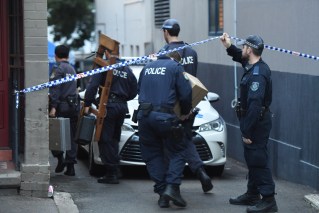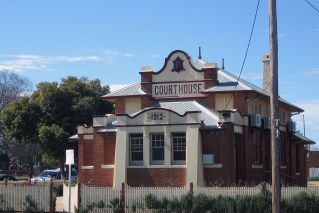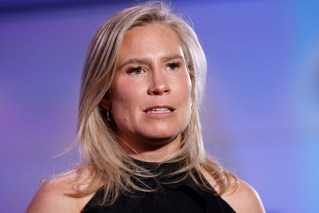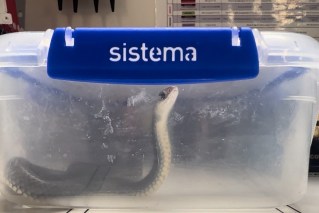Labor promises faster fibre NBN internet in $2 billion election plan

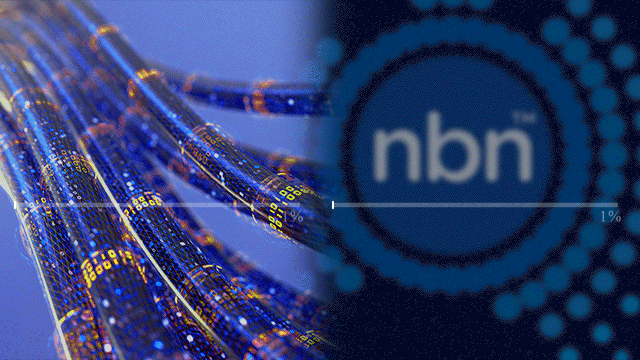
The opposition is pledging $2.4 billion to upgrade copper NBN connections to fibre.
Labor would build optical fibre broadband connections to 1.5 million more homes and businesses, in a $2.4 billion election promise the opposition claims would provide “world-class gigabit speeds” to the regions.
Prime Minister Scott Morrison will on Wednesday unveil a high-tech promise of his own, pledging $100 million for quantum computing technologies as part of a national plan on ‘critical technologies’.
“Reliable, quality, high-speed internet is not a luxury or a nice to have. It is essential 21st-century infrastructure,” Labor leader Anthony Albanese said of the Opposition’s latest campaign policy.
$2.4 billion for NBN upgrade
Under what Labor is deeming a “repair job” of the National Broadband Network (NBN), the Opposition proposes to extend fibre connections to 660,000 premises in regional areas and 840,000 in suburbs.

Anthony Albanese. Photo: AAP
Locations would be upgraded from current copper connections, which Mr Albanese claims are “not good enough”, according to an advance copy of the plan shared with media by Mr Albanese’s office.
“Our plan will give Australians who now rely on copper wire connections the choice of having fibre connected directly into their homes if they want a faster NBN speed than their copper can deliver,” he said.
The upgrade would be voluntary on an opt-in basis, and there would be no cost to consumers, Mr Albanese’s office said.
The plan would cost $2.4 billion, which he said would be completed by 2025.
The NBN has been a key policy fight between Labor and the Coalition since it was proposed by then-prime minister Kevin Rudd in 2007.
Labor had planned to build fibre connections to nearly all homes, but cost blowouts and delays led to Coalition PM Tony Abbott radically overhauling the project in 2013 to employ a combination of fibre and existing copper connections.
However, the Coalition plan has been criticised for its delays, spiralling costs and slow speeds.
Australia currently ranks outside the top 50 in the world on fixed broadband speeds, according to the Speedtest Global Index.
Mr Albanese said the copper-fibre hybrid approach was “second-rate technology” and delivered slow connections, as well as ending up more than $28 billion over budget.

Labor proposes to connect premises to fibre NBN, from copper. Photo: AAP
The Labor leader claimed his plan would see at least 76 per cent of premises in every state, and 90 per cent of premises in the “fixed-line footprint”, get “gigabit” internet speeds by 2025.
Mr Albanese will officially unveil the plan on Wednesday.
“Families need reliable, fast connections for school and work, small businesses and entrepreneurs need it to stay competitive, regional communities need it for all those reasons, and as a matter of safety,” he said.
Quantum and critical tech in Coalition plan
Separately, Mr Morrison will also make a tech announcement on Wednesday, outlining a plan outlining Australia’s focus on a list of so-called ‘critical technologies’ including artificial intelligence, vaccines, cyber security and drones.
Under the critical technology list, Mr Morrison will announce a $100 million investment on quantum computing, a growing tech advance allowing for far more powerful and detailed calculations or information sharing.
In an address to the Australian Strategic Policy Institute, the Prime Minister will outline $70 million for a Quantum Commercialisation Hub to support Australian businesses in the field, according to an advance copy of the speech shared by his office.

Mr Morrison will announce $100 million for quantum tech. Photo: AAP
Mr Morrison said the technology involved “applying quantum physics to explore ways to acquire, transmit and process vast quantities of information”, saying Australia expects it to have uses in finance, energy, health, agriculture, mining and manufacturing.
“Quantum sensors, for example, could improve the discovery of valuable ore deposits and make groundwater monitoring more efficient,” Mr Morrison will say in his speech.
“Quantum communications could provide for secure exchange of information to better secure financial transactions.”
Quantum tech is also one of the priorities for collaboration under the AUKUS military pact with the United States and United Kingdom.
Mr Morrison said the first project of the commercialisation hub would be a joint co-operation agreement with the US.
Australia’s Chief Scientist, Dr Cathy Foley, has also been appointed to develop the first National Quantum Strategy.
The government forecasts quantum science could develop 16,000 jobs by 2040.
The critical technologies list, also to be unveiled on Wednesday, includes 63 key areas of national interest, with plans to make the innovations cheaper and more accessible, and encourage international cooperation or investment.
However, the government will initially put a major focus on nine of those 63.
They include critical mineral extraction, advanced communications, artificial intelligence and machine learning, cyber security, genomics and genetic engineering, antivirals and vaccines, low-emissions fuels, quantum tech, and autonomous vehicles and robotics.
Mr Morrison’s speech notes the federal government is working on artificial intelligence technologies, as well as developing ethical principles on ‘human augmentation’; areas he said required further consideration.
“We cannot shy away from the ethical implications of new technologies. We need to be asking ourselves what should be done with technology — not just what can be done,” the PM will say.

